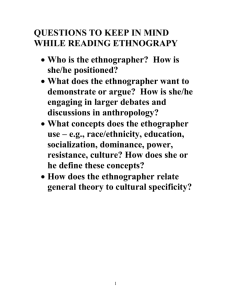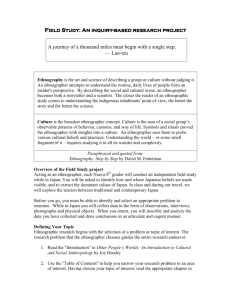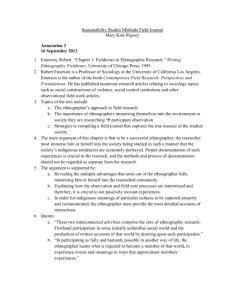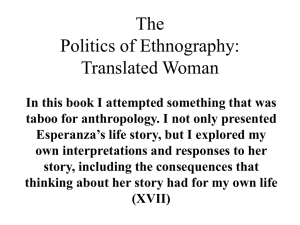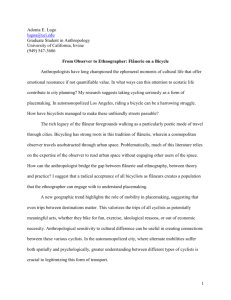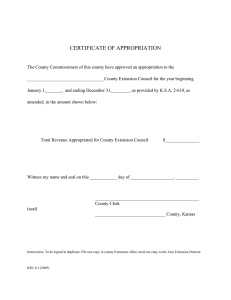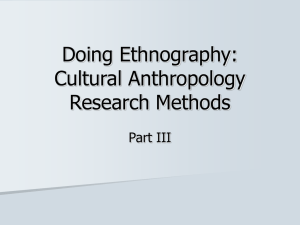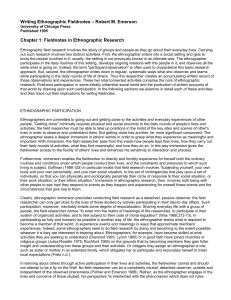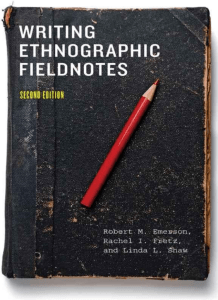Birmingham Center for Contemporary Cultural Studies (CCCS)
advertisement
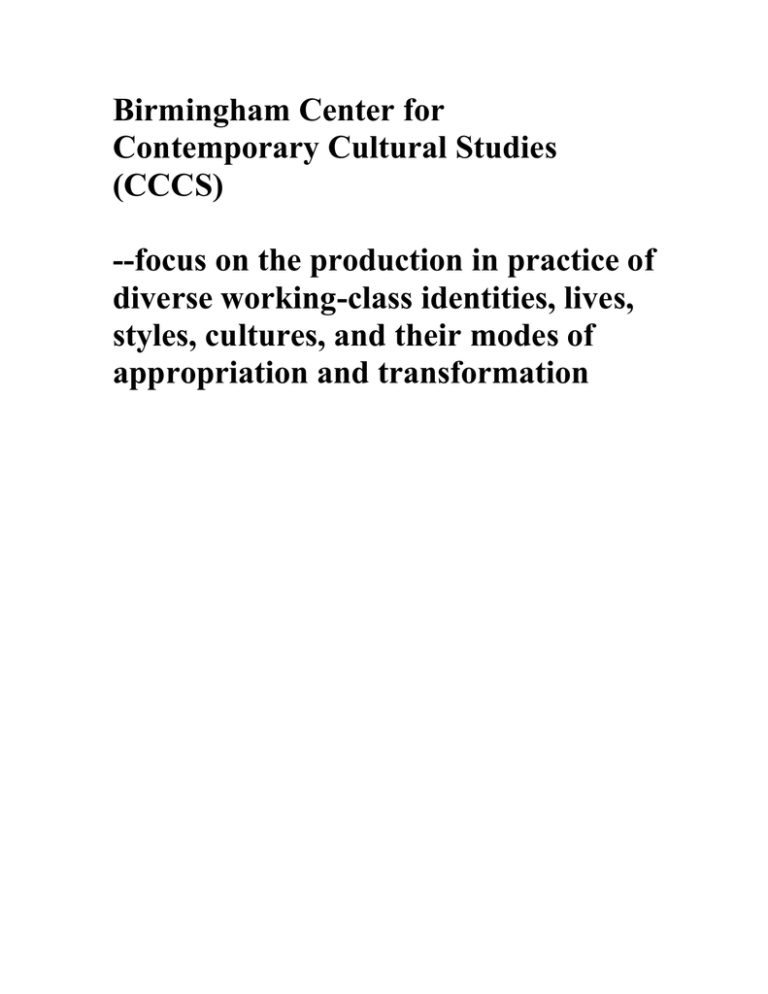
Birmingham Center for Contemporary Cultural Studies (CCCS) --focus on the production in practice of diverse working-class identities, lives, styles, cultures, and their modes of appropriation and transformation PRACTICE APPROACHES Move beyond binaries to focus equally and simultaneously on both sides of the story (structure/agency, individual/society, culture/society) Emphasis on everyday life, which is where agency and structure happen Emphasis on power, dominantion, inequality CAPITALISM: An economic system in which people work for wages, land and capital goods are privately owned, and capital is invested for individual profit. CAPITAL: Assets that are used in the production of goods and services (money, labor, human capital, resources of various kinds). SURPLUS VALUE: The difference between the pay a worker receives and what the employer gets for the product the worker has produced Focus on profit. USE VALUE: What a particular product can be used for. EXCHANGE VALUE: What a particular product is worth on the market. KEY CHARACTERISTICS OF CAPITALISM: 1. private ownership and control of the economic instruments of production, i.e., capital 2. the gearing of economic activity to making profits 3. a market framework that regulates this activity (supply and demand) 4. the appropriation of profits by the owners of capital 5. the provision of labor by workers who are free agents CLASS Williams Keywords: group (objective); social or economic category rank; relative social position; by birth or mobility formation; perceived economic relationship; social, political and cultural organization Marx: those who own property: the capitalist class, or the bourgeoisie those who are propertyless: the proletariat Who is the ethnographer? How is she/he positioned? What does the ethnographer want to demonstrate or argue? How is she/he engaging in larger debates and discussions in anthropology? What concepts does the ethographer use? How does she or he define these concepts? How does the ethnographer relate general theory to cultural specificity?
